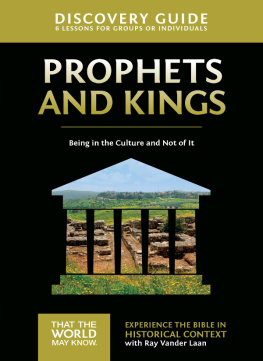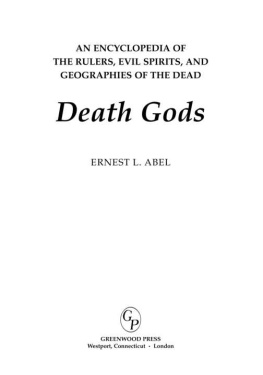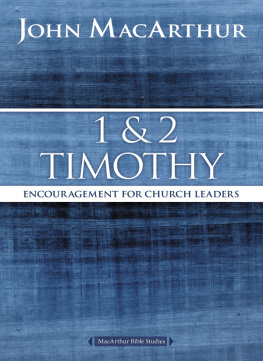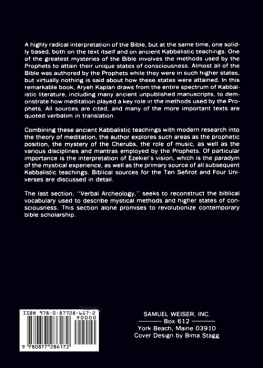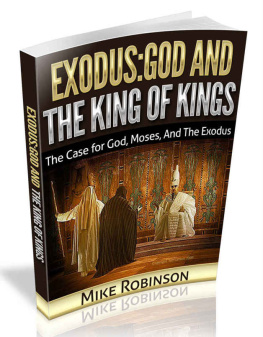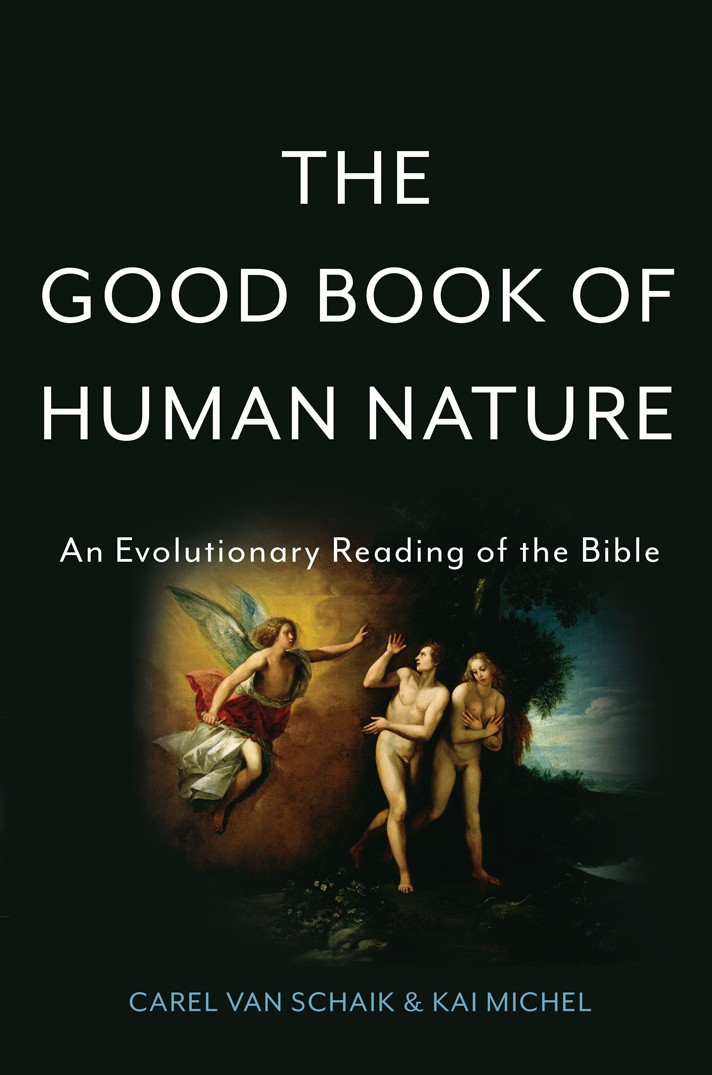

ALSO BY CAREL VAN SCHAIK
Among Orangutans: Red Apes and the Rise of Human Culture (with Perry van Duijnhoven)
The Primate Origins of Human Nature

Copyright 2016 by Carel van Schaik and Kai Michel.
Published by Basic Books, Member of the Perseus Books Group
All rights reserved. Printed in the United States of America. No part of this book may be reproduced in any manner whatsoever without written permission except in the case of brief quotations embodied in critical articles and reviews. For information, contact Basic Books, 250 West 57th Street, New York, NY 10107.
Books published by Basic Books are available at special discounts for bulk purchases in the United States by corporations, institutions, and other organizations. For more information, please contact the Special Markets Department at the Perseus Books Group, 2300 Chestnut Street, Suite 200, Philadelphia, PA 19103, or call (800) 810-4145, ext. 5000, or e-mail .
DESIGNED BY LINDA MARK
Library of Congress Cataloging-in-Publication Data
Names: Schaik, Carel van, author.
Title: The good book of human nature: an evolutionary reading of the Bible / Carel van Schaik and Kai Michel.
Description: New York City, NY: Basic Books, a member of Perseus Books Group, 2016. | Includes bibliographical references and index.
Identifiers: LCCN 2016009059 (print) | LCCN 2016010322 (ebook) | ISBN 9780465098675 (e-book)
Subjects: LCSH: Bible.--Criticism, interpretation, etc. | Bible and anthropology. | Bible--Psychology. | Bible--Philosophy.
Classification: LCC BS511.3 .S365 2016 (print) | LCC BS511.3 (ebook) | DDC 20.6--dc23
LC record available at http://lccn.loc.gov/2016009059
10 9 8 7 6 5 4 3 2 1
Table of Contents
Guide
CONTENTS
C OULD IT BE THAT THE BIBLE HAS NEVER REALLY RECEIVED THE attention it truly deserves? To many readers, this must sound like a preposterous question. After all, we are dealing here with the Book of Books, the holy scripture of Judaism and Christianity, which millions have scrutinized for countless centuries. We are nonetheless convinced that the Bible has not been given its due. It has not received recognition for the only thing that can be said with absolute certainty: it is the most important book of all of humankind. No other work has so much to reveal about us. The Bible is the Good Book of Human Nature.
The numbers alone support this proposition. The Bible was written over the course of more than 1,000 years, and for nearly 2,000 years it determined the fate of a large part of the worlds population. Today over 2 billion people still revere it as a holy text. And with a total print run of an estimated 5 billion copies, the Bible occupies an uncontested first place on the worlds eternal best-seller list.
We do not intend for these numbers to prove the value of the Good Book, either in absolute terms or in comparison to texts from other religions. We only want to stress that the Biblewhich has fascinated so many people from so many different cultures over such a long periodhas a great deal of essential information concerning human nature hidden in its pages. The Bible is much more than a religious testimonial: it also documents humanitys cultural evolution.
This realization led us to read the Bible again, keeping in mind the rich harvest of new findings in cognitive science and evolutionary biology to see what it has to say about human nature. We began our journey with Adam and Eve in the Garden of Eden, made our way through the Old Testaments vast expanses, met Moses and his chosen people along the way, encountered all the kings and prophets, immersed ourselves in the psalms, climbed up into heaven and down into hell, and finally ended our quest in the city of Jerusalem, where the Romans nailed Jesus of Nazareth to the crossbut not without taking one last look at Armageddon, where the final apocalyptic battle against the powers of evil is set to take place.
We soon discovered that a number of the Bibles stories appear in a whole new light when viewed from a biological-anthropological perspective. Onetime mysteries suddenly began to make sense. We even began to understand some of Gods more unusual characteristics. Whats more, biblical anthropology also offers insight into the process of cultural evolution. It allows us to understand how the belief in supernatural beings helped us to overcome tremendous challenges, how human nature channeled cultural change into the trajectories we recognize today, and, last but not least, how the Bible offers a key to a better understanding of ourselves in the here and now. In the Bible we find answers to humanitys greatest questions. We do not mean this in a religious sense. Rather, it teaches us why we fear death, how we deal with great misfortunes, and where our deep-seated desire for justice originated. The Bible shows us how we learned to survive in large, anonymous societies, why our modern lives sometimes seem so pointless, and why we are so often nagged by what we would describe as a longing for Paradise. When viewed without its halo, the Bible has something important to say to all of humanity.
WHY ARE WE THE FIRST TO SEE IT THIS WAY?
Remarkably, no other authors have ever taken this approach to the Biblea fact that troubled us for quite some time. Why should we be the first to have discovered the unknown side of the Bible that has so much to say about human evolution?
For most of its history the Bible has been read as a holy text, as the word of God, but the last few decades have also witnessed an increasing number of attempts to uncover what else it holds for us. It has served as a historical source to reconstruct the birth of monotheism. Books such as Werner Kellers The Bible as History and Israel Finkelstein and Neil Silbermans The Bible Unearthed have reached millions of readers with their accounts of the archaeology behind the tales of the exodus from Egypt or about David and Solomon. The Bible was even placed on the couch: thirty-four psychologists interpreted its pages from Freudian or Jungian perspectives or examined it for traces of post-traumatic stress syndrome. But to date no one has dared to undertake the quest for the Bibles anthropological treasures and the insights they might yield into human nature and cultural evolution. Why?
Of course the theologiansthe true experts of the Biblealso occasionally engage in biblical anthropology. They can be forgiven for focusing their efforts on reconstructing the biblical perspective on humanity in light of philosophy, or at best history, rather than evolution. Indeed, they remain focused on exegetical studies in which they try, with a detective-like flair, to uncover the Bibles complex origins and fathom the seemingly inexhaustible ways in which it can be interpreted. Many of them still endeavor to distill the divine spirit from these ancient stories. This is no easy task, for the will of the Almighty is not at all clearly formulated. In factand not every believer is aware of thisno generally recognized theological interpretations exist for most episodes in the Bible. Given that were dealing with texts from the ancient Near East that were written millennia ago and subsequently reworked repeatedly, its no wonder that they are anything but self-explanatory for todays readers. An increasingly wide gulf has therefore opened up between what the average churchgoer claims to know about the Bible and what theologians have uncovered through years of meticulous research.
Next page

